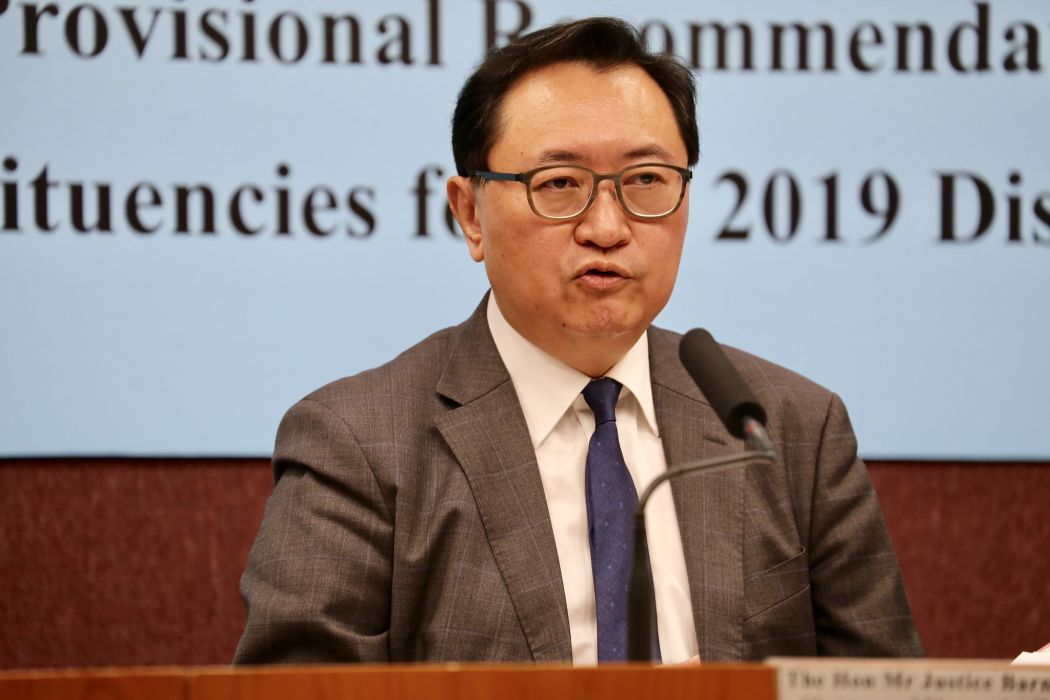Pro-democracy district councillors have accused the Electoral Affairs Commission (EAC) of gerrymandering in its proposed redrawing of constituency lines for next year’s district council elections.
The EAC released its provisional recommendations for a public consultation on the boundaries and names of constituencies on Monday. The electoral body is required to review the boundaries of district council constituencies before every election and conduct a public consultation before submitting a report to the chief executive.
The EAC proposed redrawing the boundaries of 128 constituencies for the 2019 election – potentially affecting 19 more constituencies than in the last election.

The redistricting will create 21 new seats. Four of the new seats will be in Yuen Long, Shatin and Kwun Tong will each gain three, whilst Sham Shui Po, Tuen Mun, Sai Kung and Kwai Tsing will gain two. There may also be an extra seat in Yau Tsim Mong, Kowloon City and Tsuen Wan.
The public consultation will run until August 21, and the EAC will submit its final report to the chief executive by November.
‘Political suppression’
Speaking to Inmedia, Sai Kung district councillor Gary Fan accused the EAC of gerrymandering and carrying out carefully planned political suppression.
The Verbena Heights housing estate in Fan’s Wan Hang constituency was combined with another estate to form a new constituency – a move that Fan said may hamper his chances in the election as the estate was where he got his start.
He said that four out of 12 district councillors in his party were affected by the redistricting. Fan told HK01 that he suspected the government of targeting his Neo Democrats party after it won 15 seats in the previous district council election.
Pek Long district councillor Roy Kwong was among those who were most affected by the redistricting. He told Commercial Radio on Tuesday that half of his constituency was taken away, and that “it will have a certain effect on campaign strategy.”
Asked if he thought the redistribution was made based on political considerations, Kwong said: “I won’t speculate on the government’s motives, but it’s pretty evident.” He added that “society would decide” whether the EAC made its decisions based mainly on population.

Tai Hang District Councillor Clarisse Yeung said the EAC’s plan to remove part of Caroline Hill from her constituency and include it in the Causeway Bay district was unfair and an attempt to “encroach on the constituency with the only pro-democracy seat in Wan Chai”.
She said that many current pro-democracy districts were affected by the EAC’s plan, “making people think that the EAC is carrying out a carefully planned political calculation.”
Pro-Beijing Tung Chung South District Councillor Holden Chow said he has not made a decision over whether to run again for the District Council in the newly proposed Tung Chung areas, but said he will work hard in his current role.
In the EAC proposal, a residential estate Ying Tung Estate within Chow’s district – considered Chow’s stronghold – will be allocated to a new district. Chow said he disagreed with the changes in the Tung Chung South boundaries, adding that it may be hard for residents to adjust.
However, Chow said he believed the proposal was made because of the increase of population in the neighbourhood.

“I will respect the decision handed down by the authorities,” he said after a political talk show on Tuesday. “I don’t think there is any political motivation behind [it].”
EAC Chairperson Justice Barnabas Fung said that the body’s primary consideration in reviewing boundaries was the projected population of constituencies in the year of the election – a requirement set out by statutory criteria.
Under questioning from journalists, Fung said that the EAC does not consider any political factors, such as which politicians currently occupy the seats in the constituency, or how much work they have already done in the district.
Fung said there are bound to be some candidates who are affected by the changing boundaries, but the EAC does its best to be objective. “We will use the equation that most closely matches the statutory requirement.”
PolyU associate professor Stan Wong Hok-wui discovered in a 2017 paper published in the British Journal of Political Science that – in Hong Kong – opposition constituencies were more likely to be redistricted. Though he found no significant negative relationship between redistricting and opposition incumbents’ vote share, the paper said that redistricting does reduce their overall chances of re-election.
Additional reporting: Kris Cheng
